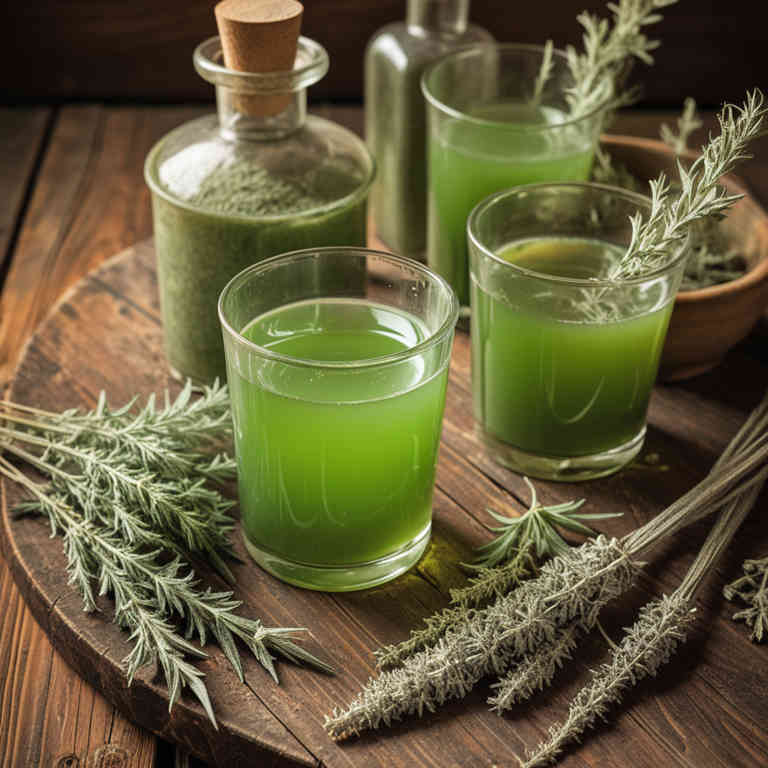Artemisia absinthium juice for medicinal use

Artemisia absinthium juice is a preparation derived from the fresh or dried leaves and stems of the wormwood plant.
It is traditionally used in herbalism for its purported detoxifying and digestive properties. The juice is often consumed in small amounts to support liver function and aid in the treatment of digestive disorders. It has also been historically used to alleviate symptoms of malaria and as a vermifuge to expel intestinal parasites.
However, due to its high concentration of absinthin, it is typically diluted and used with caution.
Uses
Artemisia absinthium juice has been used to treat various ailments throughout history, including digestive issues, fever, and parasitic infections.
Historically, it was valued in ancient Greece and Rome for its purported medicinal properties and was also used in traditional Chinese and Ayurvedic medicine. In the past, it was commonly employed to expel worms and as a remedy for respiratory conditions. Today, it is still used in some traditional practices for its antiparasitic and antifungal effects, though its use has diminished due to the complexity of its preparation and potential toxicity.
Modern research continues to explore its potential therapeutic applications, particularly in the treatment of malaria and other infectious diseases.
Benefits
Artemisia absinthium juice has health benefits such as supporting digestive health, reducing inflammation, and potentially aiding in weight management.
It contains compounds like thujone and flavonoids that may help stimulate bile production and improve liver function. Some studies suggest it may have antimicrobial properties that could help combat certain infections. Additionally, it is sometimes used in traditional medicine to alleviate symptoms of menstrual cramps and respiratory issues.
However, it should be used with caution due to potential toxicity from high levels of thujone.
Constituents
Artemisia absinthium juice active constituents include thujone, flavonoids, essential oils, and various terpenoids.
These compounds contribute to the juice's potential medicinal properties, such as anti-inflammatory and antispasmodic effects. Thujone, in particular, is known for its ability to influence the central nervous system, though it must be used with caution due to its potency. The flavonoids in the juice may support immune function and have antioxidant benefits.
Overall, the combination of these active constituents makes Artemisia absinthium juice a subject of interest in traditional and alternative medicine.
Preparation
To make Artemisia absinthium juice, start by harvesting fresh leaves and stems of the plant, ensuring they are free from pesticides.
Wash the plant material thoroughly and chop it into small pieces to facilitate extraction. Place the chopped Artemisia in a blender with a cup of water and blend until a smooth mixture is achieved. Strain the mixture through a fine mesh sieve or cheesecloth to remove solid particles.
Finally, press the strained liquid to extract as much juice as possible, and store it in a sealed container in the refrigerator.
Side Effects
Artemisia absinthium juice may lead to gastrointestinal discomfort, including nausea, vomiting, and diarrhea, due to its high concentration of bitter compounds.
It can also cause liver toxicity with prolonged use, as some studies suggest it may interfere with liver function. The juice may interact with certain medications, particularly those metabolized by the liver, increasing the risk of adverse effects. In high doses, it may lead to dizziness, headaches, and even hallucinations.
It is important to consult a healthcare professional before using this preparation, especially for individuals with pre-existing health conditions.